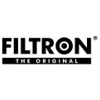Engine Lube Filters
The engine oil filter is an important and essential component in the satisfactory operation of the lubrication system. Oil filters clean the engine lubricating oil by removing dirt, abraded metal, carbon black particles and other contaminants, thus ensuring only clean oil reaches the lubrication and bearing points.

Modern oil filters are characterized by their strength and capability of withstanding high-temperatures during longer service intervals. They also have to be capable of maintaining continuous mechanical stability and resistance to dangerous contaminants in the oil during engine operation.
The new generation oil filters use the latest filter media with synthetic fiber blending and have high filtration efficiency as well as large dirt holding capacity. In addition to high-quality sealing materials is a secure and permanent connection between end plate and filter media. The oil filter cleans the oil as it passes through the filter media, thus preventing abrasive particles and other contaminants in the engine lubrication oil from damaging engine parts.
Depending on the vehicle manufacturer and model, most engine oil filters include a built-in by-pass valve in the filter. Some vehicle manufacturers have the by-pass valve built into the oil filter mounting unit (located on the engine block). If the oil filter becomes blocked or excessively restrictive to oil flow by contaminants, the by-pass valve opens and ensures continued engine lubrication by allowing oil to by-pass the filter. This means the engine is now being lubricated with contaminated oil. In this situation, the consequences of delaying a service will lead to premature engine wear, costly engine repairs or even engine replacement. This is why it’s so important to change the oil filter at manufacturer recommended intervals.
There are two types of engine oil filter technology available, a full-flow filter which is used in almost every engine and a bypass-flow filter (not to be confused with the by-pass valve) which is used in some engines as additional protection. A by-pass flow filter is usually much finer that a full-flow filter but only filters around 5-10% at a time. A full-flow filter is required to make sure all the oil is filtered before entering the lubricating circuit but cannot be too fine in case it restricts flow. The best protection is achieved by using both a full-flow filter and a by-pass flow filter together.
